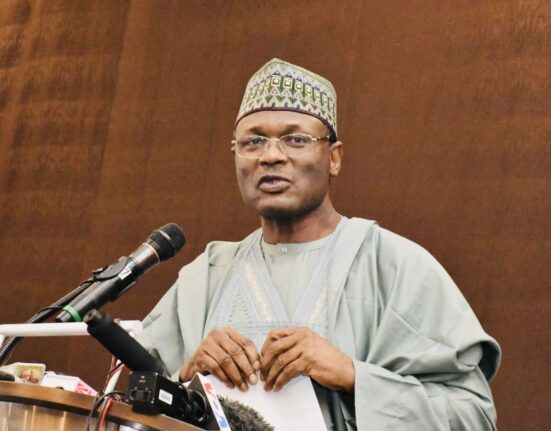The sun beat down on the vibrant streets of the Nigerian community, where whispers of dissent lingered in the air. A contentious issue was brewing, sparking tensions and dividing opinions among the locals.
At the heart of this simmering conflict was the proposed creation of Obolo State, a move that had ignited fierce opposition from the Ibibio people. The prospect of carving out a new state from Akwa Ibom State had stirred up a hornet’s nest of emotions and raised complex questions about identity and governance.
As voices grew louder and passions ran high, it became evident that this was more than just a bureaucratic decision—it struck at the core of cultural heritage and power dynamics within the region. The Ibibios, with their rich history and strong sense of tradition, were not willing to cede ground without a fight.
One local resident captured the prevailing sentiment succinctly when he exclaimed,
“Our roots run deep in this land. We cannot stand idly by as our territory is carved up for political expediency.”
To understand the depth of feeling surrounding this issue, one must delve into the historical tapestry that binds these communities together. The Ibibios have long been regarded as custodians of their ancestral lands, guarding age-old customs and preserving their way of life amidst modern pressures.
Dr. Nkoyo Ene, a renowned anthropologist specializing in Nigerian cultures, shed light on the significance of territorial boundaries in shaping collective identities.
“For many communities in Nigeria,”
she explained,
“land is not merely soil—it is imbued with stories, myths, and struggles that define who they are.”
Against this backdrop of cultural significance and historical pride, it was clear why any proposal to redraw administrative lines would spark resistance and defiance. The Obolos may have seen statehood as a path to greater autonomy and development opportunities, but for the Ibibios, it represented an encroachment on their heritage.
As debates raged on in town halls and marketplaces alike, politicians found themselves walking a tightrope between progress and preservation. Chief Okon Ekong, a seasoned lawmaker known for his diplomatic finesse, navigated these turbulent waters with caution.
“We must tread carefully,
” he urged his colleagues during a heated parliamentary session. “
While progress is essential for our people’s prosperity, we cannot trample upon traditions that have sustained us for generations.”
The unfolding drama between the Ibibios and proponents of Obolo State underscored larger themes of nation-building and diversity management across Africa. As borders shift and populations grow increasingly interconnected, finding common ground becomes both an urgent necessity and an enduring challenge.
In this microcosm of societal evolution lay lessons for policymakers nationwide—a reminder that progress must be inclusive and sensitive to histories written in blood as well as ink. Only by honoring diverse voices can Nigeria truly fulfill its promise as a beacon of unity amid diversity.
And so, beneath the heat of political wrangling and protests over state lines drawn on maps lay deeper currents—the ebb and flow of human emotion entwined with centuries-old narratives that refuse to be erased or rewritten easily.
The future remained uncertain as both sides stood firm in their convictions—each believing they held the key to unlocking prosperity for their people while safeguarding what they held most dear: their sense of belonging rooted deep within these lands where echoes from ancestors past whispered tales still untold.
In this clash between tradition-bound hearts seeking continuity versus forward-looking minds envisioning progress lay Nigeria’s eternal quest—to forge unity from diversity without erasing differences but weaving them into a tapestry rich with hues from every corner under its vast skies.









Leave feedback about this